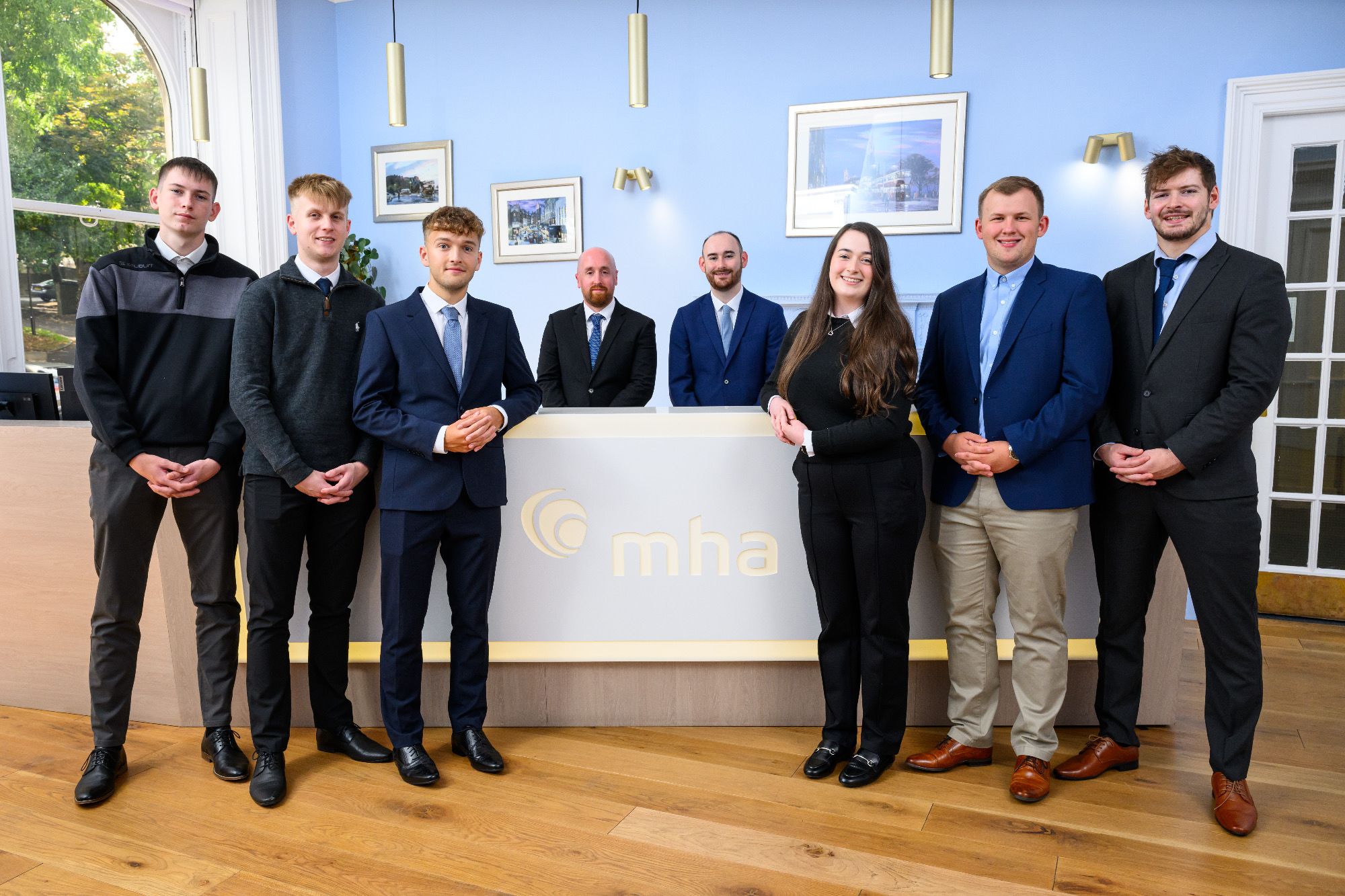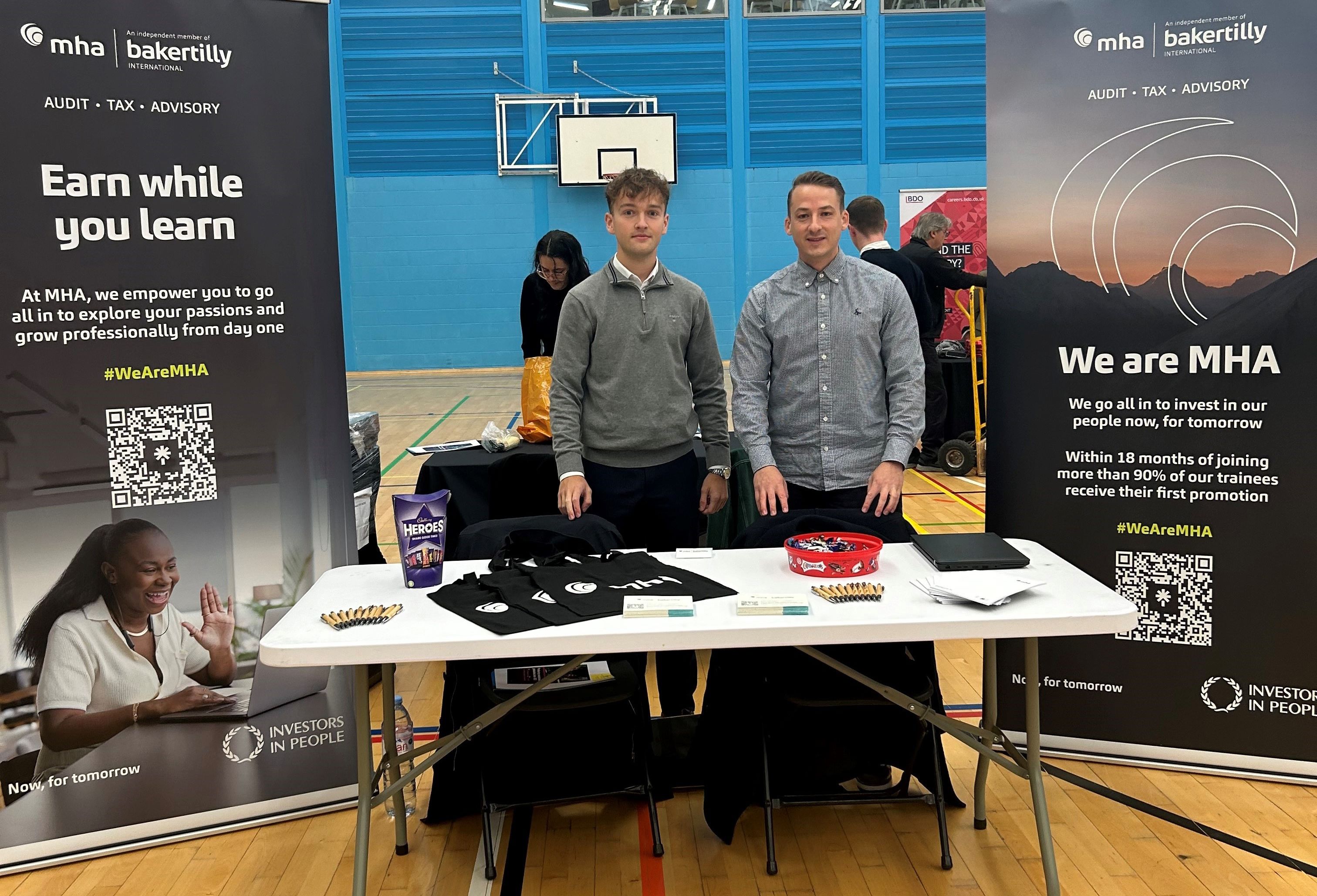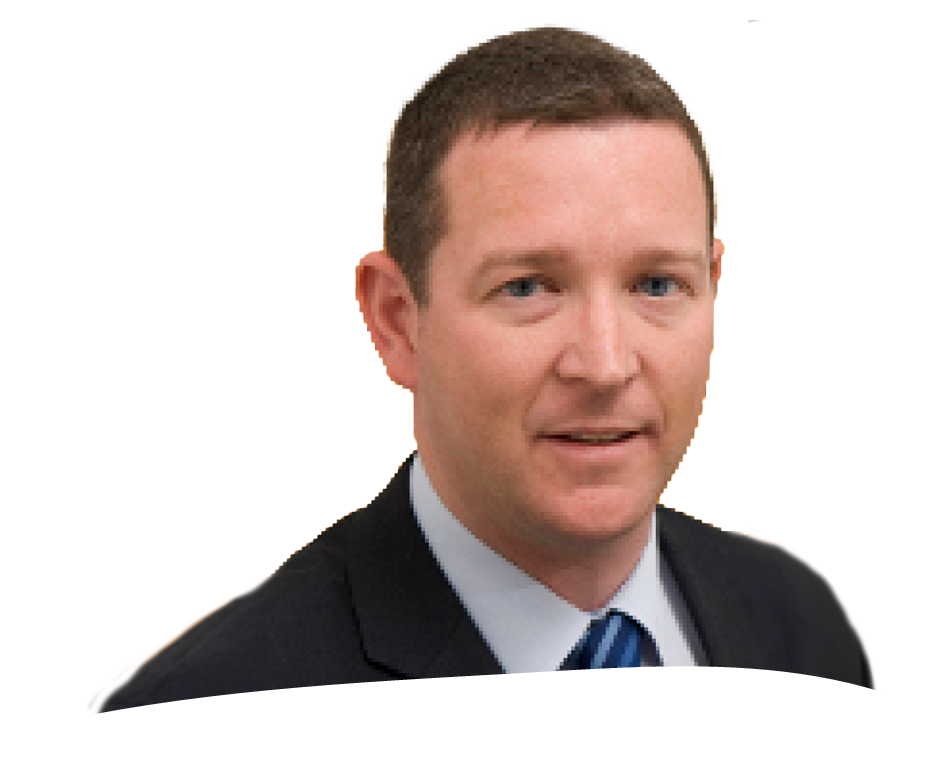Meet the practice
The up train

With its focus on inclusion, youth outreach and entertaining TikTok videos, MHA embraces a contemporary approach to accounting. Director Ben Sutherland explains why it’s a place where ICAS trainees can thrive
Words: Fraser Allen
Ben Sutherland has a confession. “I love playing golf,” he says. “But I also realise that golfing accountants are a bit of a stereotype.” As much as Sutherland enjoys a round at his local club, he’s keen to distance himself from the cliches of the profession.
Based in MHA’s Edinburgh office, Sutherland values a company culture that places an emphasis on diversity, inclusion and belonging. And with a key role in supporting trainees as they progress through their ICAS qualifications with the firm, he’s keen to champion the contemporary face of the profession. “There’s still this idea that being an accountant means sitting at your desk all day with a calculator,” he says. “That’s very different to what we’re doing here.”
For the 33 ICAS trainees at MHA’s Edinburgh and Aberdeen offices (Edinburgh’s 2024 trainee intake are pictured above), Sutherland must be something of a role model. Having himself only completed his ICAS training in 2016, he was promoted from Senior Manager to Director earlier this year, showing how quickly young CAs can build their careers at the firm. He was also a trainee within the same business, having qualified while working at Edinburgh-based Geoghegans, which merged with MHA at the beginning of this year.
“We want to see the current trainees running the business in 10 to 20 years. That involves much more than exams; it’s about developing confidence, dealing with clients and building relationships”
"I really enjoy seeing the trainees progress,” says Sutherland. “It’s about home-grown talent. Ideally, we want to see the current trainees running the business in 10 to 20 years. That involves much more than exams; it’s about developing confidence. Half of this job is about the soft skills – dealing with clients and building relationships. And that’s how you learn quickly.”
Growing up in Edinburgh, Sutherland had a natural talent for numbers, and pursued a maths degree at Heriot-Watt University. But, after opting to add an accountancy module, something clicked and he switched courses. “There was something about it that really appealed,” he says.
He was also encouraged by the positive experiences of a family member who qualified with ICAS in the 1960s. “It was clear that it offered a good career path, allowing you to branch into so many different areas of business,” he says. “When you look at the boards of a lot of the FTSE 250 companies, you see chartered accountants. I saw it as a way to have a tangible impact down the line.”
Despite the qualification’s reputation as a “passport to business”, Sutherland has focused on working in practice. His first break after graduating from Heriot-Watt came with a four-week summer internship at Aver Corporate Advisory Services (also in Edinburgh) working on a forensic accounting investigation into alleged embezzlement.
It proved “something of an eye-opener”, and Sutherland was delighted when it led to the offer of a full-time role. “I’ll forever be grateful to the directors there, Bill Cleghorn and Emma Porter,” he says. “They were very supportive and provided lots of valuable advice, including that I should train with ICAS. It was just a shame that they weren’t an ATO [authorised training office] at that stage.”
It was, therefore, in the happiest circumstances that, just over a year after joining Aver, Sutherland strolled westwards along Queen Street to start his trainee position at Geoghegans. “I wanted to join a firm of a size where I would get a good grounding in lots of different areas – that was part of the advice from Bill and Emma,” he says.
“Also, the recruitment process at Geoghegans involved informal one-to-ones where I got to meet students who were one, two or three years above me, and ask them anything I liked. Culturally, I knew from those discussions that it was the right place for me, and that culture continues today as part of MHA. You’re rewarded for putting in the effort and taking on responsibility, and that’s something I’m keen to pass on to our trainees.”
Size matters
“The benefits of now being part of a larger firm are also clear,” adds Sutherland. MHA has more than 1,800 staff, based across 20 offices in England, Scotland and Wales. Revenues for the year ending 31 March 2024 were £180m, a 30% increase on the previous year and double its turnover in 2020. “Now we have access to specialist knowledge across a huge network, both within MHA and as the UK member of Baker Tilly International. And the investment in technology allows us to provide an even better service to our clients.”
Sutherland now manages a team of 10 and works with a broad variety of clients, helping them with everything from tax planning to technology integration. “Every day is different,” he says. "I can plan maybe 20% of my week but the rest is responding to whatever comes up, and that's what makes it exciting.”
MHA likes to project that excitement with outreach work, such as its student ambassador programme, whereby younger members of the team visit schools, colleges and universities to talk about accountancy. It also offers work experience to students in their final year of school.
Ben Sutherland CA and trainee recruiting the next generation of MHA talent
Ben Sutherland CA and trainee recruiting the next generation of MHA talent
It seems the firm has little difficulty attracting Gen Z talent as a result of such initiatives, and the culture nurtured by its diversity and inclusion team. The firm also embraces social media, with TikTok an increasingly useful route to recruitment.
“The younger generation wants to see that their firm cares about societal impact and mental wellbeing, and we’re very focused on that,” says Sutherland. “We want to be a firm where people feel supported in both their personal and professional lives. And that goes for me, too. We have a young daughter and so I’m home for dinner every night, which is something I really value.”
Fatherhood has also cut down on the time Sutherland can devote to refining his golf swing. “I’ve taken up padel, which is a cross between squash and tennis,” he says. “It’s much easier for me to fit in.” And as a modern sport requiring foresight and flexibility, maybe it will prove to be the new golf for contemporary CAs.
All Too Familiar
David Menzies CA, Director of Practice, on a new package of resources to help firms combat money laundering
Accounting practices cannot avoid anti-money laundering requirements. While many firms will consider it a compliance activity, others will deem it an essential part of risk management and an enabler to providing core services to their clients. In truth, it is both.
With an ever-increasing focus on this area, we are keen to ensure firms understand their obligations and have the support they need. We are therefore making available to our regulated firms a versatile training resource – All Too Familiar™ – that can be used with various groups, from internal compliance teams to specialist or general practitioner client-facing staff.
Through a professionally produced short film, All Too Familiar™ delves into the story of a struggling restaurant business that receives a lifeline investment from a distant family member. Throughout this journey, two accountancy firms – one long-standing and one newly appointed – observe and influence the restaurant’s progress through their professional services. The storyline highlights how even long-standing clients can alter the way they generate revenue. The changes might easily be overlooked or dismissed due to the trust built over time, which can suppress an accountant’s questioning nature.
The film aims to challenge mindsets and provoke discussion on the need for greater professional scepticism when faced with potential money laundering risks. Money laundering has a devastating impact, enabling the proceeds of crime to be funnelled through legitimate bank accounts or businesses. This dirty money often fuels other serious crimes, such as modern slavery, drug trafficking, fraud, corruption and terrorism.
The film aims to raise awareness about the risks of inadvertently aiding economic crime.
Accompanying the film is a facilitator’s guide featuring a variety of resources to enable firms to run training sessions with staff. Each topic is accompanied by relevant legislation and guidance, allowing participants to explore specific questions in greater depth. Facilitators can select the most appropriate questions for their audience and tailor the session to meet their individual needs.
The ICAS practice support team can also deliver facilitated in-house training sessions for firms to get the most from the material.
Overall, this new training resource from ICAS creates a realistic and relatable context for learning, making it easier for participants to connect with the material and apply the lessons to their own professional experiences.
Explore the possibilities and elevate your training sessions with All Too Familiar






